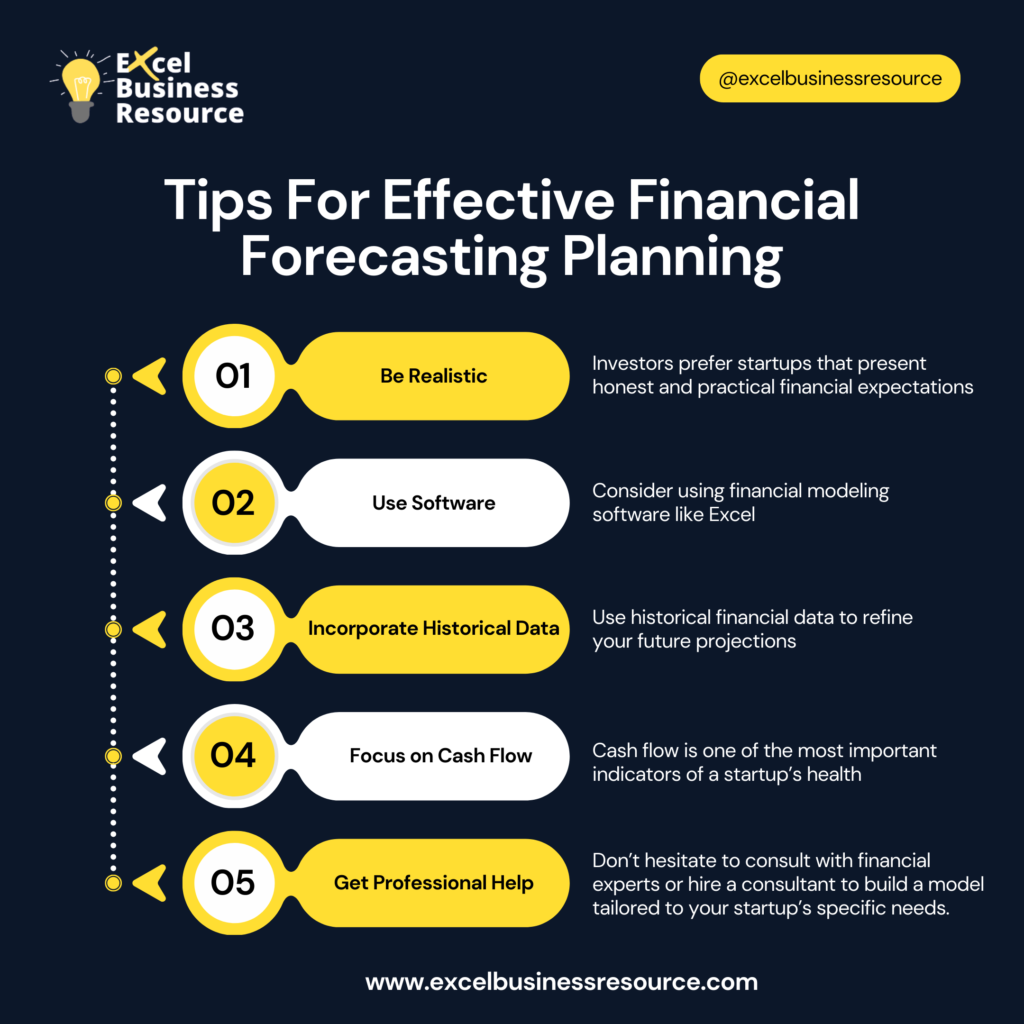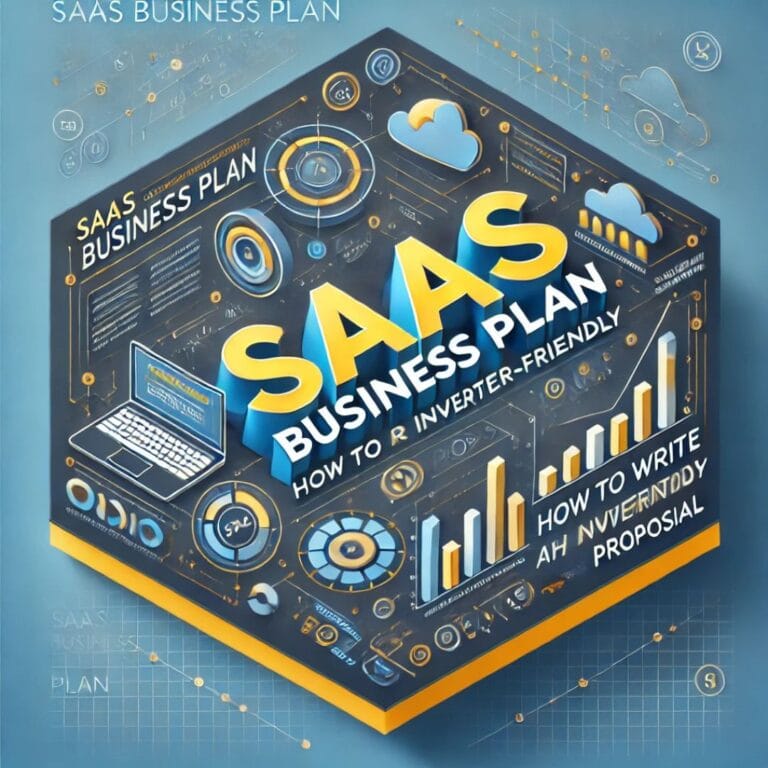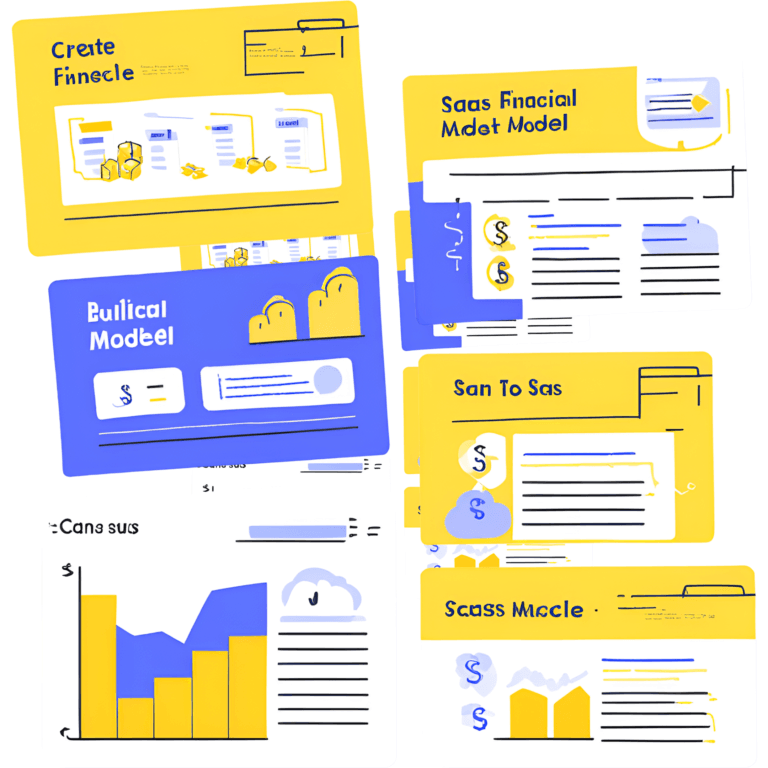Every startup dreams of growth and success, but achieving these goals requires careful financial planning. A powerful financial forecasting model is the cornerstone of this process. It helps founders predict future revenue, manage expenses, and make strategic decisions that drive sustainable growth. Whether you’re seeking investor confidence or trying to navigate the challenges of early-stage development, a solid financial forecast will give you the clarity you need to make informed decisions. In this guide, we’ll walk you through creating an effective financial model tailored to your startup’s unique needs, ensuring you’re on the path to growth and long-term success.
What is a Startup Financial Projection?
A startup financial projection is a comprehensive analysis of a company’s financial future. It estimates revenues, expenses, and cash flow over a specific time frame—usually covering one to five years. For startups, financial forecasting plays a critical role in planning, budgeting, and securing investment. The financial forecasting model for startups serves as a roadmap for making well-informed decisions about growth, hiring, marketing strategies, and more.
Benefits of Financial Forecasting for Startups
A strong financial forecast is crucial for any startup aiming to not just survive, but thrive. It’s more than just numbers on a spreadsheet; it’s about understanding the financial landscape of your business and using that insight to grow. Here’s why every startup needs to invest time in solid financial forecasting:
Attracting Investors
Investors want more than enthusiasm—they want to see how your startup plans to make money and grow. A clear, detailed financial forecast helps you prove that you’ve thought through the revenue streams, costs, and potential risks. It gives investors confidence that you’re on a path toward profitability, increasing your chances of getting the funding you need. In short, showing investors a well-thought-out financial plan demonstrates that you’re serious and ready for long-term success.
Managing Risks
Every startup faces challenges, but financial forecasting helps you see them coming before they become major problems. For example, if your forecast shows a slow month ahead for cash flow, you can prepare in advance—whether that means cutting back on spending or securing extra funding. Having a plan for the tough times helps your business stay resilient. No startup can avoid risk entirely, but forecasting lets you stay one step ahead.
Tracking Your Progress
As you move forward, it’s important to keep an eye on whether your startup is performing the way you expected. Regularly comparing your real numbers to your projections lets you see if you’re hitting your goals or need to adjust. It’s easy to get caught up in the day-to-day grind, but having that financial roadmap ensures you’re still headed in the right direction and can adapt as needed.
Making Smarter Decisions
Big decisions—like launching a new product or entering a new market—can feel overwhelming, especially when you’re unsure of the financial impact. This is where a solid forecast becomes your guide. It helps you understand how these decisions will affect your revenue, cash flow, and overall financial health. Instead of guessing, you’ll have the data to back up your choices, making you feel more confident about taking the next step.
Budgeting Effectively
For startups, managing every dollar counts. A financial forecast helps you allocate your resources wisely. Whether it’s marketing, hiring, or product development, knowing exactly how much money you’ll have in the future lets you plan and budget more efficiently. With the right financial insights, you can avoid overspending and be prepared for unexpected costs that might come your way.
Predicting your startup’s financial future isn’t always easy, but it’s one of the most important things you can do to secure your business’s future. In the end, a well-structured forecast helps you make informed decisions, stay on track, and give potential investors the confidence that your startup is built to last.
Key Components of a Startup Financial Model
A startup financial model is composed of three key financial statements: the income statement, cash flow statement, and balance sheet. These elements help provide a comprehensive view of your company’s financial health.
Income Statement (Profit & Loss Statement):
This statement provides a summary of your revenues, costs, and expenses over a specific period, showing whether your business is profitable or not.
Key Data Points: Revenue, gross profit, operating expenses, and net income.
Cash Flow Statement:
It tracks the inflow and outflow of cash within your business, helping you manage liquidity and avoid shortfalls.
Key Data Points: Operating cash flow, investing cash flow, financing cash flow.
Balance Sheet:
The balance sheet offers a snapshot of your company’s financial position at a specific point in time. It details your assets, liabilities, and shareholder equity.
Key Data Points: Current assets, long-term assets, liabilities, and equity.
These three statements work together to provide a full picture of your startup’s financial situation, aiding in more accurate revenue and expense projections for startups.
Steps to Create an Accurate Financial Forecast for Your Startup
Follow these five steps to create a financial forecasting model for your startup:
Conduct Market Research:
Market research is the backbone of any financial forecast. Understanding your industry, competitors, and target market will help you create realistic revenue estimates.
Example: How many potential customers are there? What are the spending trends in your market?
Compile Financial Data:
Start by gathering existing financial data, including tax returns, personal financial information, and expense estimates. Use this information to build your income statement, which will serve as the basis for your projections.
Assess Expenses:
Identify and list all startup expenses, including equipment, legal fees, marketing costs, and salaries. Categorize these into fixed and variable expenses for better clarity.
Tip: Break down your expenses into manageable categories to ensure nothing is overlooked.
Forecast Revenue:
Predict how much revenue your startup will generate by analyzing market demand, pricing strategies, and sales funnels. Revenue forecasting is critical for understanding whether your business can sustain itself.
Pro tip: Consider different scenarios—best case, worst case, and most likely case—to prepare for uncertainties.
Create a Cash Flow Forecast:
A cash flow forecast tracks when you expect to receive payments from customers and when you’ll need to pay your expenses. This helps ensure that your startup won’t run into liquidity problems.
Establish a Timeline:
Set a timeline for when your startup will break even and become profitable. This is essential for investors who need to know how long it will take for their investment to pay off.
By following these steps, you’ll be able to develop a reliable financial forecast that can guide your startup toward growth and success.
Tips for Effective Financial Forecasting
Here are some additional tips to ensure your financial forecasting is effective:
Be Realistic:
Avoid overly optimistic projections. Investors prefer startups that present honest and practical financial expectations.
Use Financial Software:
Consider using financial modeling software like Excel, QuickBooks, or specialized SaaS tools to streamline the forecasting process and reduce errors.
Regularly Update Your Forecast:
Financial forecasts should be dynamic and updated regularly as new data comes in. Revisit your model every quarter or whenever significant changes happen in your business.
Incorporate Historical Data:
If your startup has already been operational for some time, use historical financial data to refine your future projections.
Focus on Cash Flow:
Cash flow is one of the most important indicators of a startup’s health. Make sure your cash flow projections are detailed and realistic.
Get Professional Help:
Financial forecasting can be complex. Don’t hesitate to consult with financial experts or hire a consultant to build a model tailored to your startup’s specific needs.

Conclusion
Financial model for startups is an essential part of business planning that helps ensure long-term success. A detailed and accurate startup financial model can help you attract investors, plan for growth, and navigate potential challenges. By following the steps outlined in this article, you can create a powerful financial forecast that supports your startup’s goals.
Ready to build your startup’s financial forecast? Download our free template here!
Want expert help with your financial projections? Contact Excel Business Resource today for personalized support!







